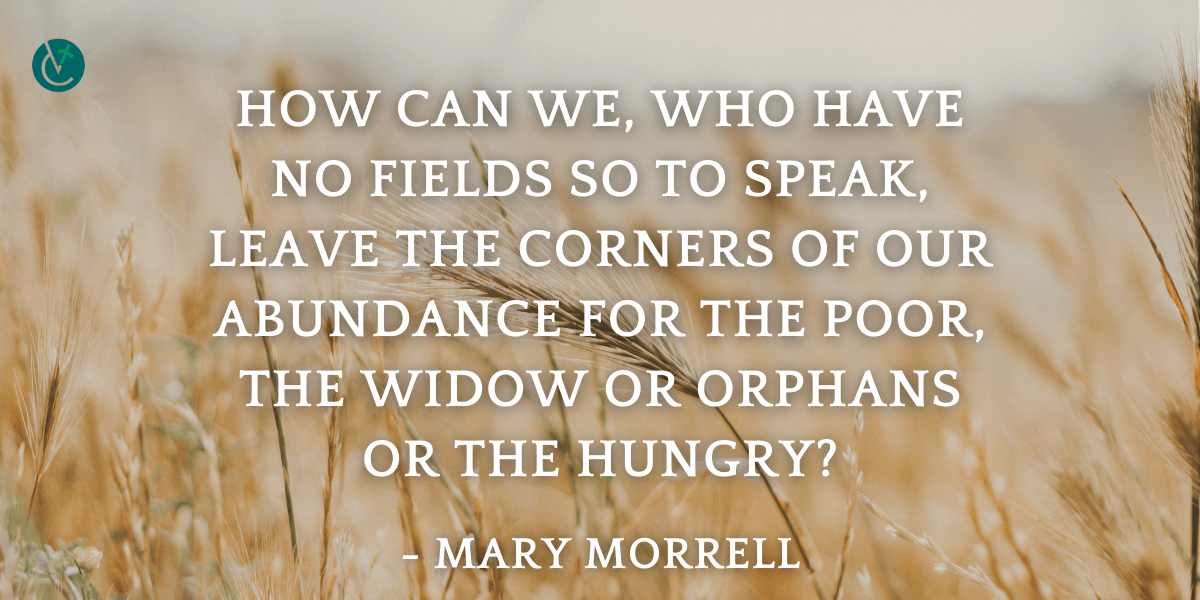
Remembering to leave ‘the corners of our fields’ for others
After making a very long and frenzied 10-hour drive to visit my family, I was anticipating my stop in a favorite motel along the way.
Once there, I dropped my bags near the dresser and sat in the desk chair for a few minutes to catch my breath and review the take-out menus given me by the staff.
I was interrupted by loud “whoosh whoosh” sounds coming from behind the hotel. My room backed up to a large field of crops, hemmed in with trees on one side and fencing on the others.
“Now what?” I thought, thoroughly exhausted and looking forward to a quiet evening of rest.
Pulling back the curtains that covered my windows, I was stunned to see a black helicopter landing within feet of my room. Two men dressed in black jackets got out, undertaking some kind of maintenance, before slipping away beyond my sight. I was fascinated, with myriad mystery scenarios running through my mind as the sun set on this rural patch of North Carolina.
I was amazed at how the helicopter landed so perfectly, so close to the fences, without damaging anything until I realized that a corner of the field where they set down seemed to have been reserved for them. I wondered if that was just fortuitous or if it was planned.
It also brought to mind the lesson of Leviticus: “When you reap the harvest of your land, you shall not reap all the way to the corner of your field, or gather the gleanings of your harvest. You shall not pick your vineyard bare or gather the fallen fruit of your vineyard; you shall leave them for the poor and the stranger. …”
Leaving the corner of the field for the good of the poor and stranger is an example of “tzedakah,” a Hebrew word for justice and referring to righteous behavior expected of every Jewish person.
In Jewish thought, giving to those in need is the right and honorable thing to do. Their crops, or for those who live in the city, their money, belong to God who generously entrusted it to them and is meant to be shared with His children in need.
Our Jewish roots as Catholics ensure that we also have a similar calling presented in the teachings of Jesus, who entrusted us with the Corporal Works of Mercy: feed the hungry, give drink to the thirsty, shelter the homeless, visit the sick, visit the prisoners, bury the dead and give alms to the poor.
How can we, who have no fields so to speak, leave the corners of our abundance for the poor, the widow or orphans or the hungry? We are limited only by our resistance and our imagination.
I learned from the example of my dear friend, Joan — a mother of two sons and a young widow — who gave abundantly from her table. At every holiday, no matter the financial struggles, she brought us all together in celebration and sent us home with more than we came with, both with love and a bag of leftover culinary delights. When I was sick, she regularly brought home-cooked meals to help feed my very large family.
Her home and her heart were like an ever-present cornucopia — a horn of plenty overflowing with all the physical, spiritual and emotional nourishment you could need.
So it came as no surprise to me when I checked on the etymology of the word corner to discover it comes from the Old French, corne and Latin, corna – both of which mean horn.
With the holidays upon us, especially in the middle of a pandemic, may we find ways to leave the corners of our fields for those in need so all may know the joy and security of God’s horn of plenty.
— Originally published in the Winter 2020 issue of Vermont Catholic magazine.

